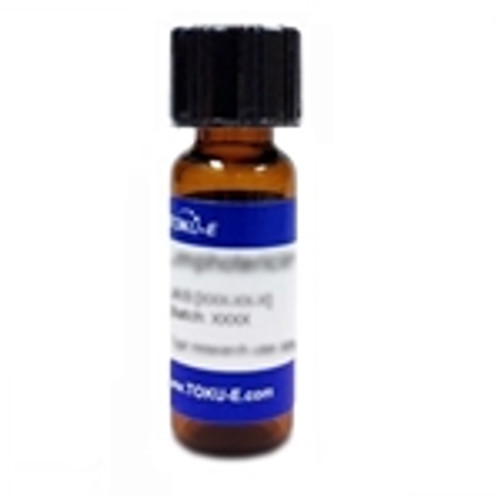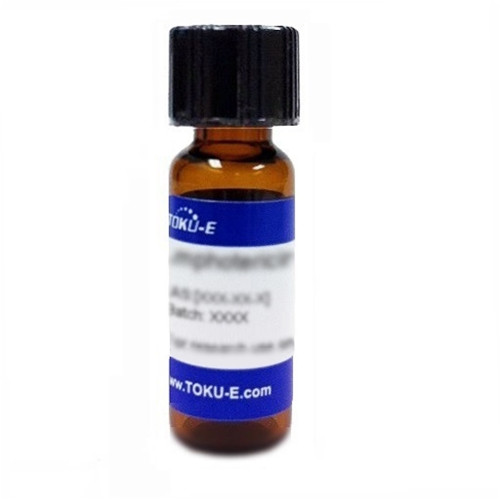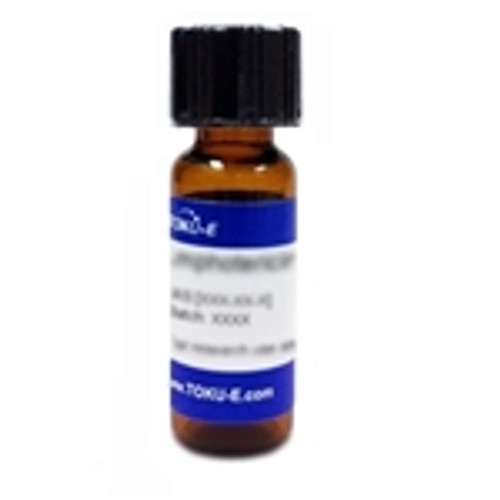Cochlioquinone B, the minor component of a bioactive pigment isolated from Bipolaris leersia, is an NADH-ubiquinone reductase inhibitor and phytotoxic agent inhibiting root growth. It is closely related to Cochlioquinone A which inhibits diacylglycerol acyltransferase and exhibits anti-angiogenic and nematocidal activity. Cochlioquinones have recently been shown to be antagonists of the human chemokine receptor, CCR5, in HIV-1.
Cochlioquinone B is soluble in ethanol, methanol, DMF and DMSO.
Cochlioquinone B is soluble in ethanol, methanol, DMF and DMSO.
| References | Cochlioquinones and epi-cochlioquinones: antagonists of the human chemokine receptor CCR5 from Bipolaris brizae and Stachybotrys chartarum. Yoganathan K., et al. , J. Antibiot., 2004, 57, 59. Cochlioquinone A1, a new anti-angiogenic agent from Bipolaris zeicola. Jung H. J. et al. , Bioorg. Med. Chem., 2003, 11, 4743. Inhibitory activity of diacylglycerol acyltransferase by cochlioquinones A and A1. Lee H. B. et al. , J. Antibiot., 2003, 56, 967. Phytotoxic compounds cochlioquinones are inhibitors of mitochondrial NADH-ubiquinone reductase. Lim C.-H. et al. J. Pesticide Sci., 1996, 21, 213. |








